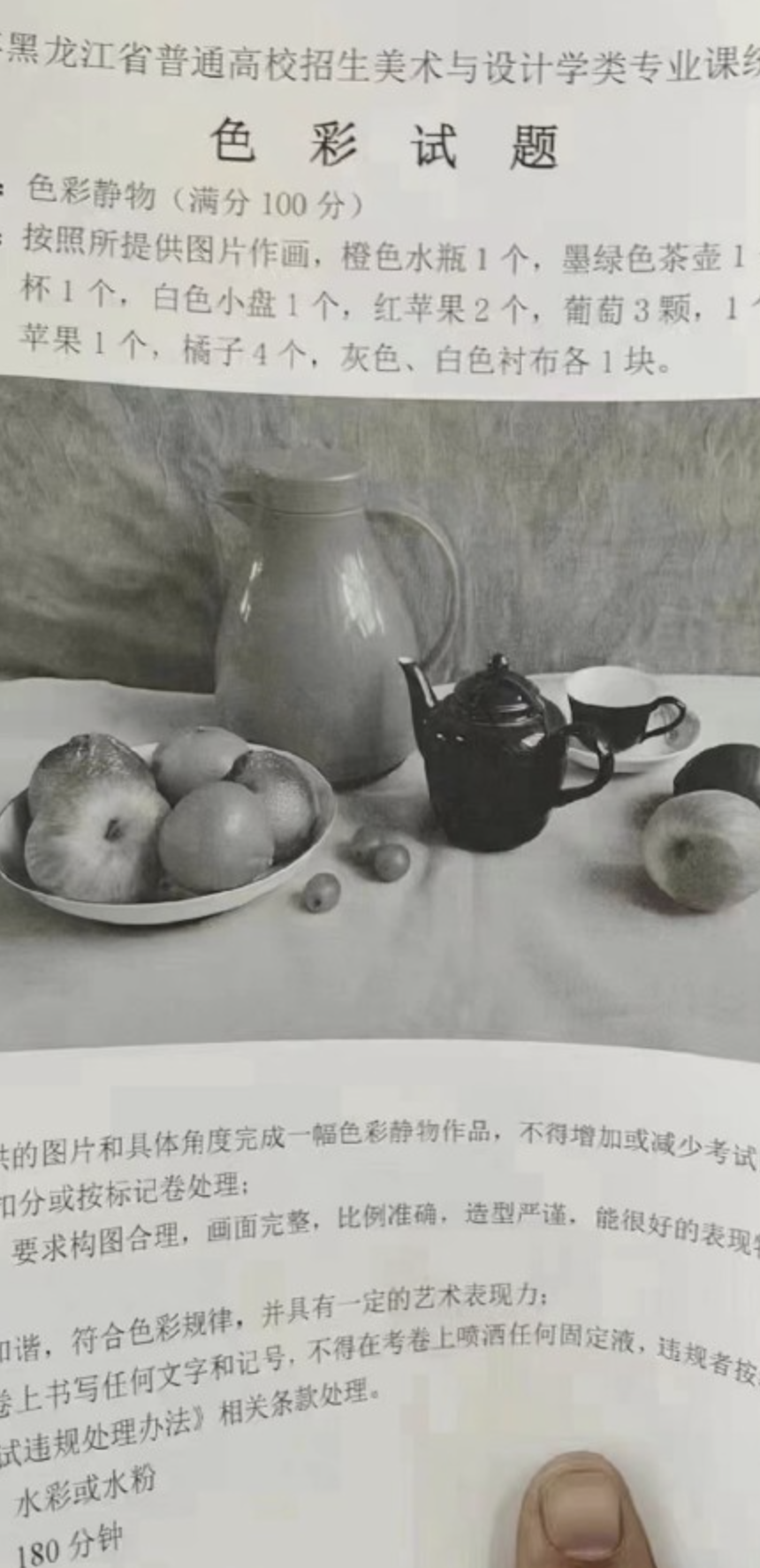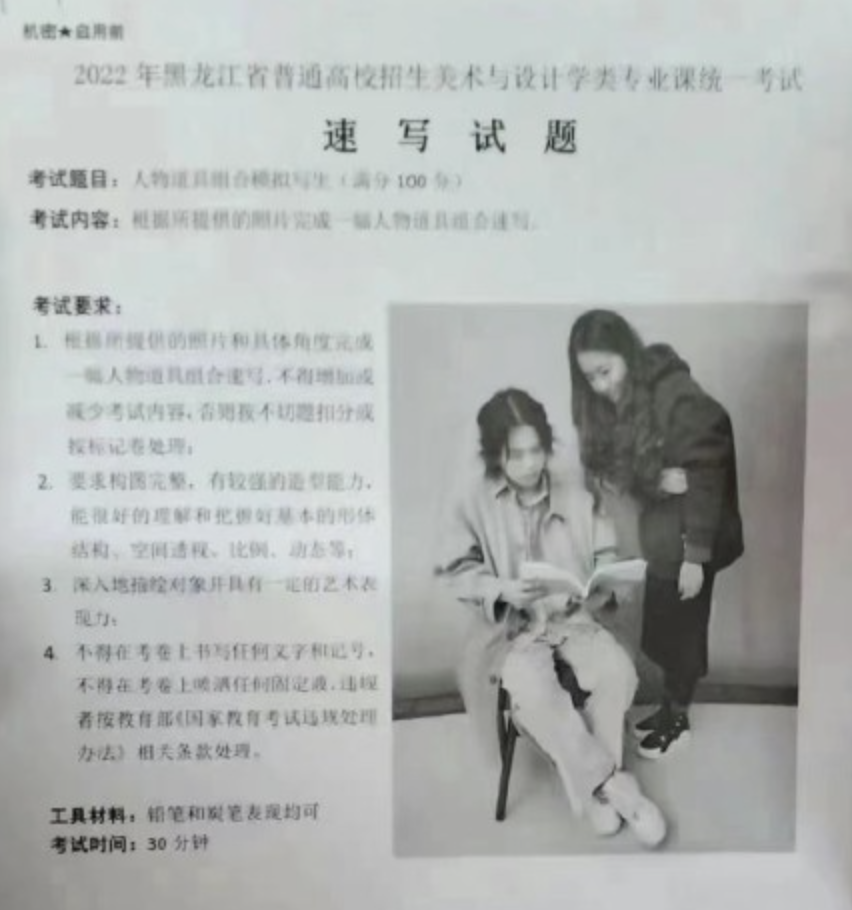英语中部分否定的谚语

高中知识
2022/1/7
1.英语中的部分否定有哪些
英语中的部分否定(即不完全否定)有如下一些表示方法: 一、all 的否定式:not all…(或:all…not)表示"并非都……"、"不是所有的都……"例如: Not all men can be masters. (= All men cannot be masters.) 并非人人都能当头头。
Not all bamboo grows tall. 并非所有的竹子都会长很高。 二、both 的否定式:not…both (或:both… not) "并非两个……都……" 例如: I don't want both the books. 我不是两本书都要。
Both (the) windows are not open. 两扇窗子并不都开着。 三、every…的否定式:"不是每……都……" 例如: Not every book is educative. (或:Every book is not educative.) 不是每本书都有教育意义的。
Not everyone likes this book. 并非人人都喜欢这本书。 This flower is not seen everywhere. 这花并不是随处可见的。
四、always的否定式:"并非总是(并非一直)……" 例如: He is not always so sad. 他并不是一直都这样悲伤。 五、entirely, altogether, completely 和quite 的否定式:"不完全……","并非完全……" 例如: The businessman is never to be entirely trusted. 不可以完全信任商人。
He felt not altogether satisfied. 他并不完全满意。 I don't agree completely. 我并不完全同意。
What he did was not quite proper. 他做的不十分妥当。 六、all the time 的否定式:"并非一直……"、"未必老是……" 例如: A foolish man doesn't make a mistake all the time. 笨人未必老是犯错误。
七、not…and…的否定式,被否定的往往是and后面的那一部分。 例如: He did not speak clearly and correctly. 他讲得清楚但不正确。
This film is not interesting and instructive. 这部电影有趣但无教育意义。 She cannot sing and dance. 她会唱歌但不会跳舞。
如果将and 换成or,not 对其后面的两部分就全盘否定了。 He did not speak clearly or correctly. 他讲的既不清楚也不正确。
如要对上述的all, both, every, always, 以及entirely, altogether, completely, quite 和 all the time 等词作完全否定,那就分别要用与之相对应的全否定词,如no, none, neither, no one, never, not (never)… at all 等。例如: All of them can do it.--- None of them can do it. Both are good.---Neither is good. Everybody likes it. ---Nobody likes it. He is always late. --- He is never late. We don't trust them entirely. --- We never trust them at all. He was here all the time. --- He was never here. 英语中若干否定形式的比较,更详细的可以看看:)~ 。
2.英语中部分否定的几种表示方法英语中部分否定的几种表示方法英语中的部分否定(即不完全否定)有如下一些表示方法: 一、all 的否定式:not all…(或:all…not)表示"并非都……"、"不是所有的都……"例如: Not all men can be masters. = All men cannot be masters. 并非人人都能当头头. Not all bamboo grows tall. 并非所有的竹子都会长得很高.二、both 的否定式:not…both (或:both… not) "并非两个……都……" 例如: I don't want both the books. 我不是两本书都要. Both (the) windows are not open. 两扇窗子并不都开着. 三、every…的否定式:"不是每……都……" 例如: Not every book is educative. =Every book is not educative. 不是每本书都有教育意义的. Not everyone likes this book. 并非人人都喜欢这本书. This flower is not seen everywhere. 这花并不是随处可见的.四、always的否定式:"并非总是(并非一直)……" 例如: He is not always so sad. 他并不是一直都这样悲伤.五、entirely, altogether, completely 和quite 的否定式:"不完全……","并非完全……" 例如: The businessman is never to be entirely trusted. 不可以完全信任商人. He felt not altogether satisfied. 他并不完全满意. I don't agree completely. 我并不完全同意. What he did was not quite proper. 他做的不十分妥当.六、all the time 的否定式:"并非一直……"、"未必老是……" 例如: A foolish man doesn't make a mistake all the time. 笨人未必老是犯错误.七、not…and…的否定式,被否定的往往是and后面的那一部分. 例如: He did not speak clearly and correctly. 他讲得清楚但不正确. This film is not interesting and instructive. 这部电影有趣但无教育意义. She cannot sing and dance. 她会唱歌但不会跳舞. 如果将and 换成or,not 对其后面的两部分就全盘否定了. He did not speak clearly or correctly. 他讲的既不清楚也不正确. 如要对上述的all, both, every, always, 以及entirely, altogether, completely, quite 和 all the time 等词作完全否定,那就分别要用与之相对应的全否定词,如no, none, neither, no one, never, not (never)… at all 等.例如: All of them can do it.--- None of them can do it. Both are good.---Neither is good. Everybody likes it. ---Nobody likes it. He is always late. --- He is never late. We trust them entirely. --- We never trust them at all. He was here all the time. --- He was never here.。
3.请问英语中的“部分否定”是什么看下面这个句子:
This is our first lesson, so I don't know all your names.
这一句的后半部分该怎样理解呢?究竟是“你们的名字我全不知道”还是“你们的名字我不全知道”呢?不少学生对此感到茫然。这就涉及到英语中的部分否定和全部否定。上面这个看似全部否定的句子,其实表示的是部分否定。
[1] Not单独使用,表示全部否定,但是在英语中 all , both, every, everyone, everything 等与否定词 not 连用时,表示的是部分否定,而非全部否定。例如:
I don't know all of them. 我并不全认识他们。 I don't like both of the books. 这两本书我并不都喜欢。
Not every student goes to the farm on Sundays. 并非每个学生星期天都去农场。
Not everyone in our class likes football. 在我们班并非每个人都喜欢足球。
[2] 若要表示全部否定,则应用相应的表示全部否定的否定词。如: all → none (一个人也没有、没有任何东西), both → neither (两个都不), every → no, everyone → no one(nobody), everything → nothing 等。上述四个例句要表示全部否定应分别为:
I know none of them. 他们我都不认识。
I like neither of the books. 这两本书我都不喜欢。
No student goes to the farm on Sundays. 星期天没有学生去农场。
No one/ Nobody in our class likes football. 我们班没有人喜欢足球。
参考文献:
4.在英语句子中,哪些词表示一部分否定,哪些词表示全部否定首先,我们来看看什么是反意疑问句。
反意问句,是说话人对自己讲述的事实不是十分有把握,提出了肯定与否定或者否定与肯定的两种看法,让对方加以判断。 反意问句的构成可分为两部分,前一部分是个肯定句,后面反意问句就是否定的;如果前一部分是否定句,后面反意问句就是肯定句。
所以从表面上看,反意问句应该比较简单。例如: He likes playing football, doesn't he? 他喜欢踢足球, 是吗?Yes, he does. / No, he doesn't. 是的。
/ 不是。 His sister didn't attend the meeting, did she? 他妹妹没有参加会议, 是吗?Yes, she did. / No, she didn't. 不, 她参加了。
/ 是的, 她没参加。 按语法规则来说,后半部分的反意问句非常短,就两个词:助动词 代词,如:。
., may I? / did she? / don't they?/ should he? 等等。但是,在什么情况下使用什么样的助动词,在什么情况下使用什么样的代词,就比较复杂了。
这篇文章里的21个注意事项,就是谈这个问题的。下面来看看这21条到底是什么。
一、判断前面句子是肯定句还是否定句 1. 前面肯定句中用了 no, nothing, nobody, never, few, seldom, hardly, rarely, little 等否定含义的词时, 算作否定句,后面的反意问句当然要用肯定形式了。 The boy made no answer, did he ?Some plants never blow, do they ? [注意:不要随便想像哪些词行,哪些词不行。
比如只有否定前缀的词就不能算作否定句。请看下面例句.] 2. 否定前缀不能视为否定词, 那就是肯定句,后面的反意问句仍用否定形式。
It is impossible, isn't it?He is not unkind to his classmates, is he? 二、关于几个常用词组是助动词还是实义动词 3. 前面肯定句中用了have to ( 过去式had to ) , 反意问句用don't /didn't 。 We have to get there at eight tomorrow, don't we?[have to 的意思是“必须”,但have to 作为实义动词处理,] 4. 前面肯定句中的谓语是used to 时, 反意问句部分用usedn't/didn't 。
He used to take pictures there, didn't he? / usedn't he?[used to 可以作为助动词处理即usedn't, 也可作为实义动词即didn't] 5. 前面肯定句中用了有had better, 反意问句部分用hadn't you? You'd better read it by yourself, hadn't you?[had better 意为“最好”如何如何,这里仍然用had 来构成反意问句。] 6. 前面肯定句中用了would rather, 反意问句部分多用 wouldn't。
He would rather read it ten times than recite it, wouldn't he?[would rather 是个词组,意为“宁愿”如何如何,这里仍然作为would 来处理。] 7. 前面肯定句中用了有You'd like to. 反意问句部分用wouldn't 。
You'd like to go with me, wouldn't you?[would like to 是个词组,意思是“想要”,所以用将来时的would 来正理。] 三、关于几个情态动词的用法 8. 前面句子中用了情态动词dare / need, 反意问句部分仍然用dare / need。
We need not do it again, need we ?He dare not say so, dare you? 而当dare / need 为实义动词时, 反意问句部分用助动词do/don't。 She doesn't dare to go home alone, does she? 9. 前面肯定句中用了表示推测或虚拟语气的must , 反意问句部分根据实际情况而定。
(1) must 表示推测 He must be a doctor, isn't he?[must 这里是猜测,意为“一定是”。] They must finish the work today, needn't they? 他们今天必须要完成这项工作, 是吗?[must 这时是情态动词,意为“必须”。
] It must be going to rain tomorrow, won't it?[must 表示推测,谓语关键是be going to 表示将来时,所以用 will/won't.] (2) must have done sth. 表示虚拟语气,have 强调已经做完某事,did/didn't 强调事情本身。 You must have studied English for three years, didn't you/haven't you? ?[两者都行,关键看说话人强调什么部分了。
] He must have finished it yesterday, didn't he?[强调动作。] 再例如: She must have read the novel last week, didn't she? 她上星期一定读了这本小说了, 是吗? [强调read的动作] You must have told her about it, haven't you? 你一定把这事告诉她了, 是吗? [强调已经做完了某事] 10. 前面肯定句中用了ought to,反意问句用oughtn't/shouldn't。
He ought to know what to do, oughtn't he? / shouldn't he?[ought to 与 should 的意思非常相近,表示“应当”如何,两者可以替换。] 11. 前面肯定句的谓语是wish, 反意问句要用may 。
I wish to have a word with you, may I?[按规则wish 的否定应该是don't ,但wish 这里表示询问是否允许,用了may。] 四、反意问句中使用什么代词 12. 前面肯定句中用了neither… nor, either… or , 反意问句部分根据其实际而定。
Neither you nor I am engineer, are we?[neither。nor 原来是指两个中每个都不……,一般是指单个的人,这里也可用are you/ are I. ,根据说话者的意图而定。
] 13. 前面肯定句中用了指物的不定代词everything, nothing 等, 反意问句部分主语用it。 Everything is ready, isn't it?[指物的不定代词,通常都可以用it 来代替。
但指人的somebody, anybody 一般用复数的they. 请看下面第14的例句。] 14. 前面肯定句中主语是指人的不定代词everybody, anyone, 。
5.英语中表示否定的词有哪些一、显形否定 常用否定词 no,not,never,none,nobody,nothing,nowhere,neither, nor,neither。
nor,but,without,unless,but for,but that,in the absence of,regardless of, instead of,exclusive of,short of,rather than,anything but,any more than,out of the question,would no more。than 由a-,dis-,il-,im-,ir-,un-,non-,anti-,mal-,under-等前缀及-less,-free,-proof等后缀合成的否定词 hardly,scarcely,barely,little,few,seldom等半否定词 avoid,ban,call off,cancel,deny,deprive,exclude,escape,evade,forbid,free。
from,free from/of,fail,hate,ignore,lack,lose,miss,naught,neglect, prohibit,quit, refuse,rid,rule out,stop以及above,against,beneath,beyond,far from,off,out of,past和absent,bad,bare, empty, last, poor,vaccant等可用于表达否定概念的词。1) 这类否定句要注意如下三个问题:否定程度的强弱,说话者的态度以及否定句式表肯定概念 但有些否定词的位置不同,含义也不同。
这类词还有 advise,tell,ask,require,request,pretend 等。3)部分否定(或不完全否定) 除 了上述c)类词以外,当 all,both,every,everything,everybody,everywhere,always,often,completely, wholly,entirely,necessarily 与not 连用时,也表示部分否定:另外,d)类词属多义词,必须多加小心,尤其是beyond等介词,要注意其搭配关系。
beyond: ~ expectation(出乎意料), ~ debate / controversy(无可争议,无疑的), ~ dispute(无可辩驳),~ description(无法描述),~ cure(不可救药),~ one誷 grasp or conception(不可理解), ~ control (无法控制), ~ belief(难以置信),~ all comparison(不能相提并论,不能相比) out of: ~ sight(看不见),~ humour(不高兴),~ breath (喘不过气来), ~ cash(没有钱),~ mind(不去想),~ bounds(不准进入), ~ date / style / fashion(过时,不时髦),~ work(失业),~ danger(脱离危险) beneath criticism(不值得批评);past repair(无法修补),past all belief(不可思议);off one誷 mind (不放在心上),off colour(精神不好,身体不舒服) 常用否定句型1)too。to。
,too。for。
2)stop (prevent,keep,hinder,protect,save,prohibit,dissuade。)。
from。3)利用虚拟语气表否定4)用before引导的从句表“来不及……,不等,未……先……,以防”等否定含义5)预先安排的事未办到或计划落空6)用比较级句型表否定7)其它含否定概念的句型 二、隐形否定 此类否定既无特定句型,又无否定词,其否定含义多为习惯用语或引申义,颇为费解,也最易出错,切不可望文“生译”。
6.英语中表示否定的词有哪些一、显形否定常用否定词no,not,never,none,nobody,nothing,nowhere,neither, nor,neither。
nor,but,without,unless,but for,but that,in the absence of,regardless of, instead of,exclusive of,short of,rather than,anything but,any more than,out of the question,would no more。than由a-,dis-,il-,im-,ir-,un-,non-,anti-,mal-,under-等前缀及-less,-free,-proof等后缀合成的否定词hardly,scarcely,barely,little,few,seldom等半否定词avoid,ban,call off,cancel,deny,deprive,exclude,escape,evade,forbid,free。
from,free from/of,fail,hate,ignore,lack,lose,miss,naught,neglect, prohibit,quit, refuse,rid,rule out,stop以及above,against,beneath,beyond,far from,off,out of,past和absent,bad,bare, empty, last, poor,vaccant等可用于表达否定概念的词.1) 这类否定句要注意如下三个问题:否定程度的强弱,说话者的态度以及否定句式表肯定概念但有些否定词的位置不同,含义也不同.这类词还有 advise,tell,ask,require,request,pretend 等.3)部分否定(或不完全否定)除了上述c)类词以外,当all,both,every,everything,everybody,everywhere,always,often,completely, wholly,entirely,necessarily 与not 连用时,也表示部分否定:另外,d)类词属多义词,必须多加小心,尤其是beyond等介词,要注意其搭配关系.beyond: ~ expectation(出乎意料), ~ debate / controversy(无可争议,无疑的), ~ dispute(无可辩驳),~ description(无法描述),~ cure(不可救药),~ one誷 grasp or conception(不可理解), ~ control (无法控制), ~ belief(难以置信),~ all comparison(不能相提并论,不能相比)out of: ~ sight(看不见),~ humour(不高兴),~ breath (喘不过气来), ~ cash(没有钱),~ mind(不去想),~ bounds(不准进入), ~ date / style / fashion(过时,不时髦),~ work(失业),~ danger(脱离危险)beneath criticism(不值得批评);past repair(无法修补),past all belief(不可思议);off one誷 mind (不放在心上),off colour(精神不好,身体不舒服)常用否定句型1)too。to。
,too。for。
2)stop (prevent,keep,hinder,protect,save,prohibit,dissuade。)。
from。3)利用虚拟语气表否定4)用before引导的从句表“来不及……,不等,未……先……,以防”等否定含义5)预先安排的事未办到或计划落空6)用比较级句型表否定7)其它含否定概念的句型二、隐形否定此类否定既无特定句型,又无否定词,其否定含义多为习惯用语或引申义,颇为费解,也最易出错,切不可望文“生译”。
以上就是高考网小编为大家介绍的关于英语中部分否定的谚语问题,想要了解的更多关于《英语中部分否定的谚语》相关文章,请继续关注高考网!
























